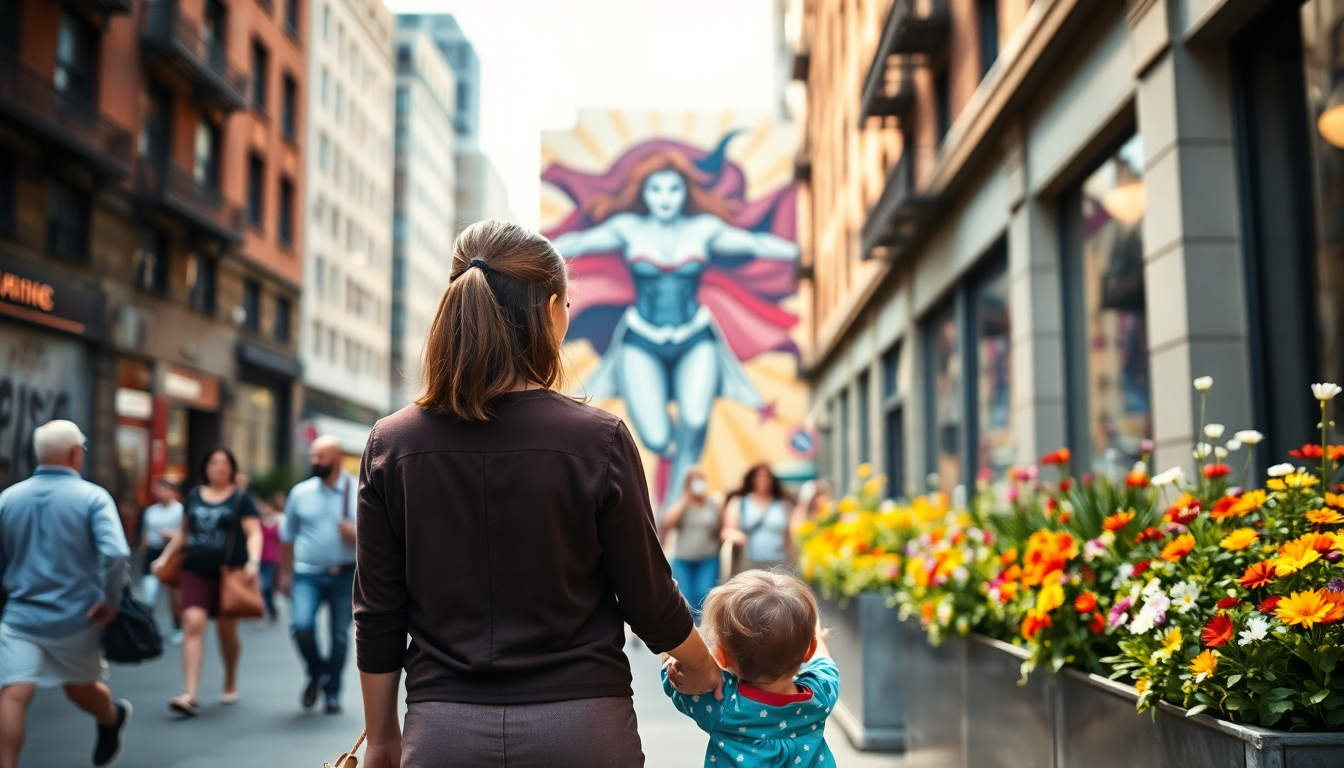Table of Contents
When we think about superhero stories, it’s hard to ignore how the portrayal of female characters has dramatically changed over the years. One of the most exciting developments in recent films is how motherhood is not just acknowledged but celebrated as a vital aspect of female identity. Have you ever wondered how these changes reflect our society’s evolving views? This article dives into this transformation, highlighting characters like Sue Storm in “The Fantastic Four: First Steps.” By exploring the intersection of motherhood and superheroism, we can gain a deeper understanding of how female representation in cinema is reshaping.
The Evolution of Maternal Themes in Superhero Films
The superhero genre has certainly seen a remarkable shift, especially regarding its female characters. In the past, women often took a backseat, defined almost solely by their relationships with male heroes. Fast forward to today, and we’re witnessing a wave of female-led stories that boldly place motherhood at the forefront. Isn’t it refreshing to see narratives that celebrate the complexities of being both a superhero and a mother? Recent box office hits suggest that audiences are hungry for authentic and relatable portrayals of women, and this is a trend that seems to be here to stay.
Reports from the industry highlight that films featuring strong maternal themes resonate deeply with viewers. This is no coincidence; it mirrors broader societal changes where conversations about the joys and challenges of motherhood are more prominent than ever. As filmmakers aim for authenticity, they are weaving the maternal journey into the very fabric of superhero storytelling.
Spotlight on Key Characters and Their Maternal Journeys
At the core of this evolution is Sue Storm, the Invisible Woman, whose arc in “The Fantastic Four: First Steps” is a powerful example of how motherhood can enrich a character’s depth. Right from the start, the film introduces us to Sue’s pregnancy, establishing a compelling link between her superhero identity and her role as a mother. Isn’t it fascinating how this blend of narratives allows for a deeper exploration of her motivations and the challenges she faces, especially against cosmic threats?
Sue’s journey is significant not just for showcasing motherhood, but also for highlighting the fierce love and protective instincts that define maternal figures. Throughout the film, her powers are more than just tools for battle; they represent the extraordinary lengths a mother will go to protect her child. This approach reveals a more relatable and human side to superhero characters, moving beyond the typical tropes of sheer strength and invincibility.
Interestingly, the film also portrays male characters in supportive roles, depicting them as nurturing figures in Sue’s journey. This refreshing take challenges traditional gender roles, suggesting that vulnerability and strength can coexist in a dynamic family setting. By emphasizing community and shared parenting responsibilities, the film adds a new layer to the superhero narrative, inviting a more inclusive portrayal of family dynamics.
Looking Ahead: Trends and Future Projections in Superhero Storytelling
As the superhero genre continues to evolve, it seems likely that we’ll see an increasing focus on maternal themes and the complexities of female identity. Filmmakers are beginning to realize the power of stories that resonate with diverse audiences, and placing motherhood at the center of these tales is a significant step forward. The success of films exploring these themes suggests a potentially transformative shift in how future superhero narratives will be crafted.
In the next few years, we can anticipate more characters embodying the balance of strength and vulnerability, reflecting the multifaceted nature of being a woman today. With audiences craving more authentic representations, filmmakers will need to craft stories that not only entertain but also mirror the realities of motherhood and the emotional journeys of female heroes.
In conclusion, weaving motherhood into superhero narratives marks a significant advancement in the portrayal of female characters. As these stories evolve, they invite us to engage with the complexities of motherhood in ways that resonate on a personal level, paving the way for a richer understanding of female strength.


